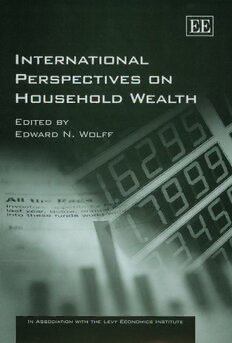
International Perspectives On Household Wealth PDF
461 Pages·2006·2.484 MB·English
Most books are stored in the elastic cloud where traffic is expensive. For this reason, we have a limit on daily download.
Preview International Perspectives On Household Wealth
Description:
The contributors to this comprehensive book compile and analyse the latest data available on household wealth using, as case studies, the United States, Canada, Germany, Italy, Sweden, and Finland during the 1990s and into the twenty-first century. The authors show that in the US, trends are highlighted in terms of wealth holdings, among the low-income population, along with changes in wealth polarization, racial differences in wealth holdings, and the dynamics of portfolio choices. The consensus between the authors is that wealth inequality has generally risen among these OECD countries since the early 1980s, although Germany stands out as an exception. In the case of the US, it is also noted that wealth holdings have generally failed to improve among low-income families and that the racial wealth gap widened during the late 1980s. International Perspectives on Household Wealth also contains new results on a number of topics, including measures and changes of wealth polarization in the US, measurement and changes of portfolio span in the US, asset holdings of low-income households in the US, and the effects of parental resources on asset holdings in Chile. Academic, government, and public policy economists in OECD countries, as well as those in so-called middle-income countries around the world, will find much to engage them within this book. It will also appeal to academics and researchers of international and welfare economics and other social scientists interested in the issue of inequality.
See more
The list of books you might like
Most books are stored in the elastic cloud where traffic is expensive. For this reason, we have a limit on daily download.
